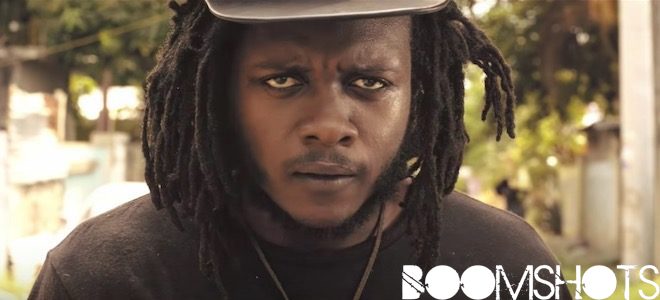A Man With Locks Don’t Need No Glocks
Not every music artist can “buss” right out the gate, sometimes it takes cultivation before they are rewarded with the fruits of their labor. After four years of slowly building a following, Samory I is primed to be a major voice in reggae music in 2017 with the release of “Rasta Nuh Gangsta,” which addresses some common misconceptions about Rastafarians. Video And Interview After The Jump…
Born Samory-Tour Frazer in the Kencot section of Kingston, Samory I spent his early years singing in the church. He was raised a Seventh Day Adventist, but made the conversion to Rastafari as he got older. His foray into the music industry began after he was heard singing in the home of his current manager Bridgett Anderson, who also helped steer the careers of the late Garnett Silk and Jahmali.
His 2013 single “Just Believe” introduced the world to a smooth, silky voice that’s reminiscent of the late Hugh Mundell. Shortly after capturing the attention of Rory from Stone Love, Samory I released two songs produced by the famed selector/producer titled “Take Me Oh Jah,” and “African Daughter.”
Samory I kicked off 2016 by mashing up Jamaica’s weekly Dubwise session before making his first appearances outside of Jamaica at Reggae Jam in Germany and then at the Reggae Geel Festival in Belgium. He also released the singles “I am Gad” (produced by Hamburg’s Silly Walks Discotheque), “Ride On,” and “Fear of Jah.” But he’s hit a new height in 2017 with the release of the Rory-produced “Rasta Nuh Gangsta,” and its accompanying video, which depicts him confronting badmind police and skin bleachers as he patrols the streets of Kingston.
“Most of the I dem have the knowledge of Rastafari misconstrued,” Samory I explained to Boomshots via email. “Dem feel like a thousand gun or a hundred gun can bring them forward or closer to achieving systematic freedom. [But I say] intelligence over firearms all day.”
Samory I is working on an album and plans to use his music to promote love, peace, kindness, humility and the tenets of Rastafari.
“That is what original Rastafari brought to the people,” said the artist, who plans to tour Europe later this year, as well as Canada.. “From Bob Marley, Dennis Brown, from the days of old when reggae music the music of the people, those practices were practiced.”
“A king in the face of a vampire” Run that…
Subscribe to Boomshots TV
Follow Boomshots on Tumblr
Follow @Boomshots
Follow @rcooperphotography

Leave a Reply